TCTMD Looks Back on 5 Years of Its Kahn Journalism Fellowship
Created in honor of late TCTMD editor Jason Kahn, the fellowship has helped train five journalists. We tracked them down.

The summer of 2019 marked the fifth anniversary of TCTMD’s journalism fellowship program named after former colleague and friend Jason Kahn. To mark the occasion, TCTMD tracked down all five fellows to find out where they’ve landed in the years since their Jason Kahn Fellowships in Medical Journalism wrapped up.
Nicole Lou (2015)
Lou was the first fellow accepted for the program, in the summer of 2015. At the time, she was earning an MA in Journalism from New York University’s Science, Health, and Environmental Reporting Program (SHERP), which Kahn graduated from in 1992. The world-renowned program enables students to gain hands-on experience in telling the stories of science and medicine via digital, print, and broadcast media.
Having the opportunity to attend TCT 2015 and report live from 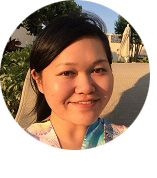 the meeting ranked as Lou’s most memorable moment from her fellowship experience. “I learned that I really enjoyed the fast pace of working on-site at a conference,” she told us.
the meeting ranked as Lou’s most memorable moment from her fellowship experience. “I learned that I really enjoyed the fast pace of working on-site at a conference,” she told us.
After the fellowship ended, Lou graduated from the SHERP program and since 2016 has worked as a cardiology reporter at MedPage Today. She also is a producer of Anamnesis, a medical storytelling podcast.
Lou said she loves that, because she continues to see the news team at meetings she covers throughout the year, her contact with TCTMD didn’t end after the fellowship. Her advice to other early-career journalists: “Don’t be afraid to admit what you don’t know—a fellowship is the perfect time to learn.”
Michael DePeau-Wilson (2016)
DePeau-Wilson was a student in the graduate program at the Craig Newmark Graduate School of Journalism at City University of New York. TCTMD was his first experience with a New York City-based media outlet and he admits to not initially being familiar with the subject matter.
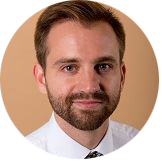 “I really appreciated that everyone on the team was friendly and encouraging,” he said. “I learned so much more than I expected to that summer, and I am still so thankful to everyone at TCTMD for helping me to learn and grow as a writer and reporter. I am still drawing on what I learned now that I am working as an editor at another medical news company.” DePeau-Wilson’s experience that summer included writing an obituary of Galen Wagner, the former director and co-founder of the Duke Cardiac Care Unit.
“I really appreciated that everyone on the team was friendly and encouraging,” he said. “I learned so much more than I expected to that summer, and I am still so thankful to everyone at TCTMD for helping me to learn and grow as a writer and reporter. I am still drawing on what I learned now that I am working as an editor at another medical news company.” DePeau-Wilson’s experience that summer included writing an obituary of Galen Wagner, the former director and co-founder of the Duke Cardiac Care Unit.
After graduating with a degree in journalism, DePeau-Wilson worked as a freelancer for several science- and health-focused websites.
“Then about 6 months after the fellowship ended, I was hired to be an associate editor at McMahon Publishing Group, which is a publisher of several clinical news publications. I started working on two of those monthly print publications, Anesthesiology News and Pain Medicine News,” he said. “I have since been promoted to the associate managing editor position for Anesthesiology News. It’s not cardiology, but I still really enjoy reporting on the specialty.”
In the years since the fellowship, DePeau-Wilson married and had a son named Emmett. “It’s been a busy and rewarding few years,” he told us.
His advice to others considering a similar fellowship is that the experience of working on a media team that focuses on a medical specialty or subspecialty cannot be matched.
“Even if your long-term goals might be to report on more-general topics for a more-general audience, this kind of fellowship will prepare you to be a more nuanced and detail-oriented journalist,” DePeau-Wilson said. “It’s very difficult to rely on assumptions when you are covering a medical specialty for the professionals in that specialty. You have to pay close attention to every detail of your reporting and writing. It can be difficult if you’ve never done it before, but it is also an amazing way to become a better journalist.”
Ashley Lyles (2017)
Like Kahn and Lou, Lyles was a graduate student from SHERP, having previously earned an undergraduate degree from Michigan State University, where she also took premed classes.
“I have so many fond memories of my time with TCTMD, and I am very grateful for the experience,” she said. “Attending TCT 2017 in Denver for the first time through the fellowship is something I will never forget. It was amazing to watch the live cases, to interview experts in person, and to have the opportunity to be interviewed there myself. The entire experience really planted a seed in my mind that this is the kind of work I want to do. It made me aware of what was possible. It was truly inspirational and has laid a solid foundation for much of the work I have done and much of what I hope to do next.”
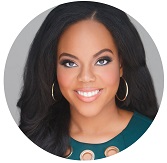 Since graduating from SHERP following the fellowship, Lyles has written for MedPage Today, where she reported primarily on cardiology and has traveled to numerous medical conferences in the US and abroad. She also serves on the Cardiovascular Research Foundation’s Women’s Heart Health Initiative advisory committee and intends to go on to medical school, with the ultimate goal of having a career as a practicing physician and as a medical journalist.
Since graduating from SHERP following the fellowship, Lyles has written for MedPage Today, where she reported primarily on cardiology and has traveled to numerous medical conferences in the US and abroad. She also serves on the Cardiovascular Research Foundation’s Women’s Heart Health Initiative advisory committee and intends to go on to medical school, with the ultimate goal of having a career as a practicing physician and as a medical journalist.
In 2018, Lyles won an Association of Health Care Journalists’ award for Excellence in Health Care Journalism in the student reporting category for a collaborative investigative project on the US Food and Drug Administration’s drug approval process. Most recently, she was named Miss New York International 2020.
“International Pageants Inc has a national alliance with the American Heart Association and the Go Red for Women movement, through which I will serve as an ambassador,” Lyles noted. “Throughout my reign, I am excited to champion a cause that holds personal significance to me. My dad suffered from sudden cardiac arrest while working out at our local gym. He eventually had sextuple bypass, but now he’s doing much better. I’m committed to sharing his story with hopes of inspiring people to take better care of their heart health.”
Her advice to anyone considering this type of fellowship: “Take advantage of every opportunity. Fellowships are a great time to learn about which aspect of journalism you will enjoy most. There’s a lot you can do in medical journalism, whether it is writing, editing, or even doing podcast and video work.”
Lucy Hicks (2018)
Hicks also was a graduate student from SHERP at the time of her fellowship experience.
“For me, the most memorable aspect of my time as a fellow was the support that I received,” she said. “I felt like a member of the team from day one and always felt comfortable asking Caitlin or Shelley questions if I wasn’t sure about something. Due to that support, I developed my writing skills and became very comfortable writing stories, even if the study was about a subject I was not extremely familiar with. The opportunity to work on a longer-form piece (in my case, about soda taxes) was also a beneficial experience.”
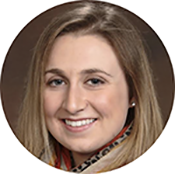 Also noteworthy was her time attending TCT. “It was my first time reporting at a conference. I was a bit nervous, especially because a lot of the material was more complex than most of the previous studies I had reported on,” she said. “Working with the TCTMD team built my confidence in my ability to cover breaking conference news. I even had a piece appear in the daily TCT conference newspaper.”
Also noteworthy was her time attending TCT. “It was my first time reporting at a conference. I was a bit nervous, especially because a lot of the material was more complex than most of the previous studies I had reported on,” she said. “Working with the TCTMD team built my confidence in my ability to cover breaking conference news. I even had a piece appear in the daily TCT conference newspaper.”
After the fellowship, Hicks worked as an editorial intern at Psychology Today while completing her SHERP degree. In May 2019 she accepted a job as a science communication specialist at the Lasker Foundation, managing the social media and all other communication for the foundation, as well as creating content for its website. Graduating and landing her first big job rank as her greatest accomplishments since completing the fellowship.
Hick’s advice to others curious about the fellowship is “not be shy about asking questions and reaching out when you feel a little lost or stumped. I found the TCTMD team to be extremely helpful as suggesting sources or providing me with additional clarifications if there was a term in a study I was not familiar with. I would also encourage them to pitch ideas on subjects that are of interest to them.”
Marcus Banks (2019)
As with most of the other fellows, Banks was selected while attending the SHERP graduate program. He earned his degree this month and will soon begin a 4-month internship at Spectrum, which focuses on autism research.
Banks recalls that his strongest fellowship memory was working on a feature story about the very different views cardiologists have regarding the usefulness of devices like the Apple Watch.
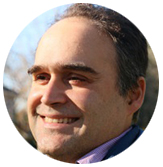 “Some cardiologists find the potential arrhythmia alerts from such devices to be useful, while others see them as a needless source of stress for people who actually have nothing to worry about,” he said. “I hope the feature fairly and comprehensively represented both viewpoints. It was the largest story I have published to date, in any outlet.”
“Some cardiologists find the potential arrhythmia alerts from such devices to be useful, while others see them as a needless source of stress for people who actually have nothing to worry about,” he said. “I hope the feature fairly and comprehensively represented both viewpoints. It was the largest story I have published to date, in any outlet.”
His advice for would-be medical journalists considering a fellowship is “not to be intimidated that ‘trade’ journalism is too difficult, or that you will ask silly questions of skilled cardiologists. The sources I spoke with were polite and helpful.” Banks added that the essential skill he learned is to understand the material sufficiently enough to ask good questions at the start of the interview, while being open to letting the interview go in unexpected directions depending on the answers.
“Finally, for any similar fellowship, it’s important to gauge how willing the permanent staff of the publication will be to make the fellow feel welcome, and to explain how stories could be improved,” Banks observed. “Everyone at TCTMD is top notch in this regard, going well out of their way to help the fellow succeed.”
* * * * *
The Jason Kahn Fellowship in Medical Journalism is given each summer to an aspiring medical journalist who works with, and is mentored by, the TCTMD staff. It serves as a living memorial to the spirit of Kahn’s work ethic and his generosity in helping early-career journalists in the medical field. Kahn was the news editor of TCTMD and manager of academic content at CRF for 11 years until his death in 2014 at age 45. He received an undergraduate degree in Communications from the University of Michigan and a Master of Arts in Journalism from NYU’s Science, Health, and Environmental Reporting Program.
The Kahn Fellowship is run by the TCTMD news team, led by its managing editor Shelley Wood, and funded by the Cardiovascular Research Foundation. Please contact Caitlin Cox, TCTMD’s news editor, at ccox@tctmd.com with any questions about the program.
L.A. McKeown is a Senior Medical Journalist for TCTMD, the Section Editor of CV Team Forum, and Senior Medical…
Read Full Bio
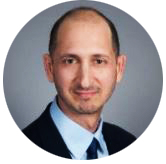 Jason Kahn’s Legacy
Jason Kahn’s Legacy
Comments